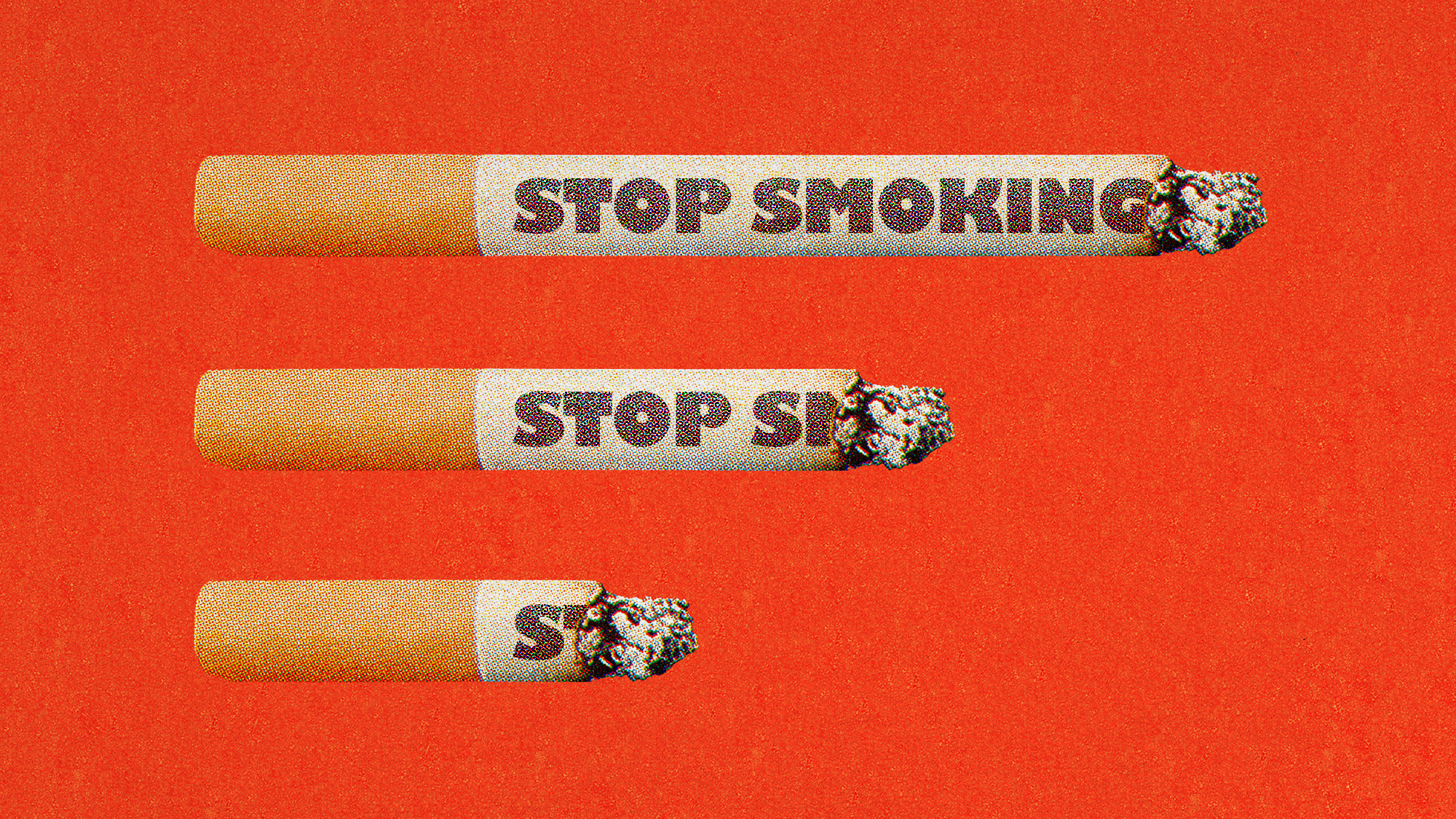Why is that Vine star wearing a Jimmy Johns T-shirt? Cash. Lots and lots of cash.
On the secret paydays of social media 'influencers'

They dazzle on Instagram and Vine. They deliver pithy shout-outs over Twitter, or showcase their personality on YouTube. Sometimes they do it for love. But sometimes they have a product to sell.
These are the so-called influencers, and they represent the next step in advertising's evolution.
To be clear, influencers aren't only the means to execute a marketing strategy. They are actors, comedians, and people of other talents and interests who have found a niche on social media like Vine, YouTube, Instagram, and Snapchat. Consider self-proclaimed digital magician Zach King, comedian Andrew "King Bach" Bachelor, and fashionista Cara Loren Van Brocklin. Of course, for some influencers, their personality is their niche. (Kim Kardashian, anyone?)
The Week
Escape your echo chamber. Get the facts behind the news, plus analysis from multiple perspectives.

Sign up for The Week's Free Newsletters
From our morning news briefing to a weekly Good News Newsletter, get the best of The Week delivered directly to your inbox.
From our morning news briefing to a weekly Good News Newsletter, get the best of The Week delivered directly to your inbox.
Influencers may favor one platform or navigate adeptly between several — but the key is in the followings they build: youth-skewed audiences whose numbers total in the thousands or even millions. That's what gives these stars crossover value to advertisers: At a time when people routinely employ ad blockers and skip past commercials while watching television, they offer a rare, direct line to consumers worldwide.
And it's not just about reaching all those eyes. Sixty-six percent of consumers worldwide say they trust recommendations from online stars. The feeling comes from their accessibility; they become part of followers' everyday lives, another friend to spend time with and whose posts they like and share.
"Part of what makes influencers powerful is that their followers feel they have a deeper, more intimate connection to them," Rachel Fletcher, supervisor of digital strategy for advertising and marketing agency RPA, told the Los Angeles Times.
Companies are capitalizing on that combination of trust and audience reach to raise awareness for their products. The tactics are different than with ordinary ads. Companies recognize that the messenger is at least as important — if not more so — as the message. This often results in ceding creative control, trusting influencers to script and shoot videos, cleverly caption a photo, or otherwise promote products in a way that reflects their personal style. "Fans are definitely aware when they're being baited with promotional posts. It has to be something that is natural and fits with the persona of the creator," said King, whose following is roughly 25 million strong. (Check out his Lacoste Vine for an example.)
A free daily email with the biggest news stories of the day – and the best features from TheWeek.com
The compensation can be handsome. Someone with 50,000 to 500,000 followers can charge an average of $2,500 for a YouTube post, $1,000 for an Instagram or Snapchat post, and $400 for a Twitter post, according to Captiv8, a company that connects brands to influencers. An influencer who operates several tiers up — say with three million to seven million followers — can charge an average of $187,500 for YouTube posts, $75,000 for Instagram or Snapchat, and $30,000 for Twitter.
Then there's the upper echelons. King Bach, who has more than 37 million followers, earned more than $300,000 from sandwich maker Jimmy Johns for a handful of videos where he's wearing a shirt with the restaurant's logo, 60 Minutes recently reported. Logan Paul — who's made his name as a kind of lovable goofball and has almost 30 million followers on all his platforms — was paid almost $200,000 for a Dunkin' Donuts ad that he ad-libbed and made in a day.
The fact that advertisers are using influencers to advertise their products isn't always clear from the promos, and this relative candor or slyness has caught the attention of the Federal Trade Commission. "We've been interested in deceptive endorsements for decades and this is a new way in which they are appearing," Michael Ostheimer, a deputy in the FTC's ad practices division, told Bloomberg. "We believe consumers put stock in endorsements and we want to make sure they are not being deceived."
The litmus test, FTC officials say, is if a consumer knew an endorser was compensated in any way, would that alter the view of the endorsement? Last year the FTC issued guidelines on how to properly disclose when and how paid influencers are being used, and this year it has gotten tougher still. In the spring, the commission took aim at clothing retailer Lord & Taylor for paying 50 fashion influencers to post about one of its dresses on Instagram without noting that they were compensated and given the dresses for free. And this summer, Warner Bros. Home Entertainment Inc. settled with the commission over charges that it deceived customers by paying influencers to promote a video game without disclosing that they were paid and told to review it positively.
Some advertisers disagree with the FTC's position, likening influencers' work to product placement, which isn't flagged (and not always as obvious as in Wayne's World). And they worry that labeling it prominently as an ad would erode the all-important feeling of authenticity and reduce the influencers', well, influence.
For the time being at least, the onus is being put on the advertisers to make sure their ambassadors are being clear. A hashtag like #ad, #sp, and #sponsored can do the trick, provided it's somewhere visible and not lost amid other hashtags or buried so low that a viewer has to click "more" to see it. Other times influencers have to walk a linguistic tightrope, thanking a company "for the gift" of a product or otherwise clarify that it was given to them for free.
While the rules are still being written, one thing is for sure: It's nice work if you can get it. Follow me @alexisboncy.
Alexis Boncy is special projects editor for The Week and TheWeek.com. Previously she was the managing editor for the alumni magazine Columbia College Today. She has an M.F.A. from Columbia University's School of the Arts and a B.A. from the University of Virginia.
-
 The pros and cons of noncompete agreements
The pros and cons of noncompete agreementsThe Explainer The FTC wants to ban companies from binding their employees with noncompete agreements. Who would this benefit, and who would it hurt?
-
 What experts are saying about the economy's surprise contraction
What experts are saying about the economy's surprise contractionThe Explainer The sharpest opinions on the debate from around the web
-
 The death of cities was greatly exaggerated
The death of cities was greatly exaggeratedThe Explainer Why the pandemic predictions about urban flight were wrong
-
 The housing crisis is here
The housing crisis is hereThe Explainer As the pandemic takes its toll, renters face eviction even as buyers are bidding higher
-
 How to be an ally to marginalized coworkers
How to be an ally to marginalized coworkersThe Explainer Show up for your colleagues by showing that you see them and their struggles
-
 What the stock market knows
What the stock market knowsThe Explainer Publicly traded companies are going to wallop small businesses
-
 Can the government save small businesses?
Can the government save small businesses?The Explainer Many are fighting for a fair share of the coronavirus rescue package
-
 How the oil crash could turn into a much bigger economic shock
How the oil crash could turn into a much bigger economic shockThe Explainer This could be a huge problem for the entire economy


